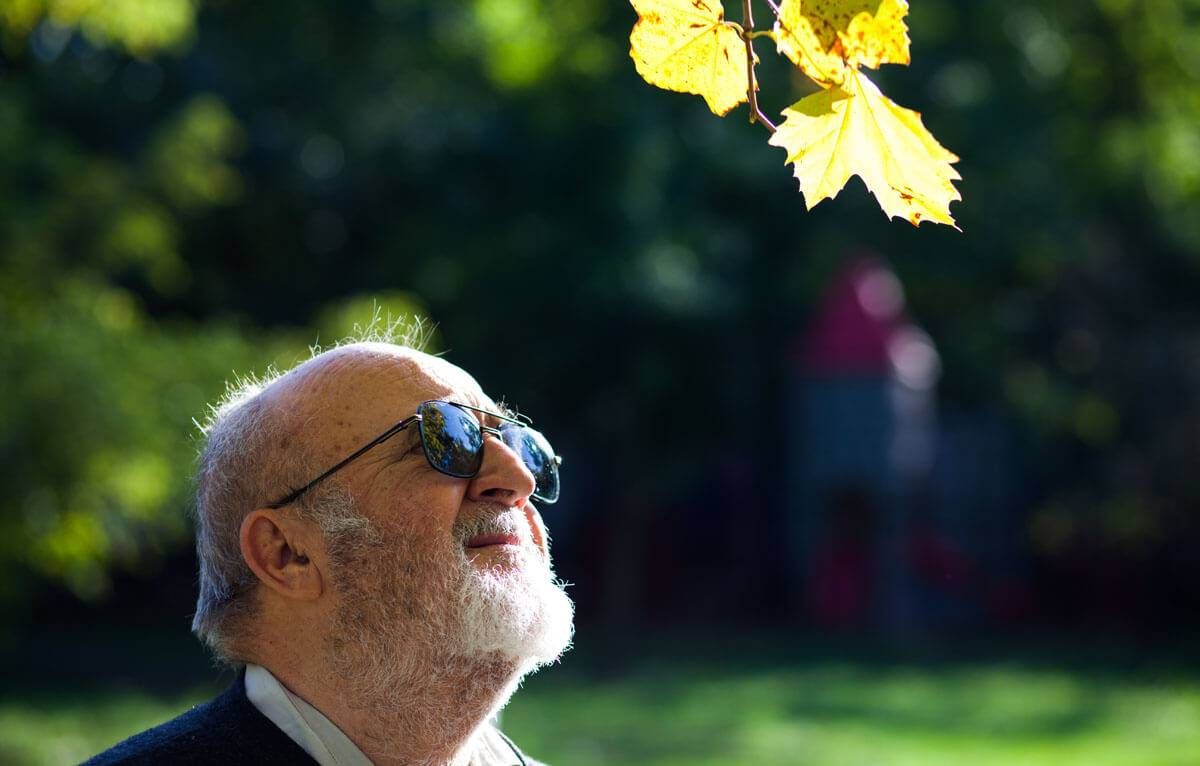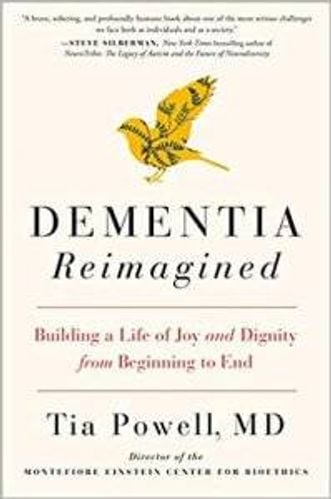Dementia Care Reimagined: A Q&A With Dr. Tia Powell
The author calls for more research on developing compassionate care models
As so many medical professionals, policymakers and nonprofits continue to sound the alarm about the impending tsunami of Americans with Alzheimer’s disease and other dementias, the U.S. still has no affordable long-term care system to handle the situation.

In her new book Dementia Reimagined: Building a Life of Joy and Dignity from Beginning to End, Dr. Tia Powell joins those sounding the alarm, but she calls for a much greater focus on developing care programs and facilities for people with dementia that preserve their dignity and ability to experience joy in life.
The professor of psychiatry and bioethics at the Albert Einstein College of Medicine in New York says it’s time to stop focusing only on finding a cure for dementia, as if that will save us from having to pay for care. It’s too late for that, she says. No magic pill or other preventative intervention is anywhere on the horizon that would be available in time to make a difference for the 10,000 boomers turning 65 every day.
Powell’s book, released this month, blends a fascinating history of how dementia has been viewed in the U.S. with her thoughts on what compassionate care for people with dementia might look like. She also includes her own experience helping to care for her mother who had dementia and died a few years ago.
In a recent interview with Next Avenue, Powell talked about what she learned from researching and writing her book:
Edie Grossfield: You wrote that you expect some people will take issue with your suggestion that we need to shift more research funding from finding a cure for dementia to developing compassionate care for people with the disease. Can you elaborate?

Dr. Tia Powell: I don’t want people to stop looking for a cure. Dementia is a serious illness, it is a fatal illness and we don’t have a cure, so I’m all for finding a cure. But that has been the overwhelming majority of the research we’ve done.
If we find a cure, it’s not going to be in time for the baby boomer generation. We will have millions and millions of people who need care. And although I think there are good people working on that, there has been pretty modest funding for thinking about what would good care look like? How can we pay for that? How can we make it accessible to people all across the country? What are the things that people with dementia and their caregivers really say they need and want?
You also expressed concern about some researchers and pharmaceutical companies focused on a preventative drug for people who have high levels of amyloid plaque in their brains — that being one theory about the cause of Alzheimer’s. You said that since research has shown high levels of amyloid doesn’t mean a person will get Alzheimer’s, such a drug would mean big bucks for 'Big Pharma' with little benefit for most of the people who take it. What are your thoughts on this research today?
I hope that particular dream is fading. We just had in the last couple of weeks another major failure of a big, hundreds-of-millions-of-dollars clinical trial trying to decrease amyloid as a way of preventing and treating dementia, and it failed again, just like the ones I’ve described in the book. I’m hoping it’s going to be the nail in the coffin for looking just at amyloid. It’s not that amyloid is good for you, but there’s something really important that we don’t understand, and it really looks like just decreasing amyloid or even preventing its buildup — I don’t think that’s going to be the ticket.
What are your hopes for developing care for people with Alzheimer’s and other dementias?
A lot of people who don’t even have dementia yet are absolutely terrified. They think that this is more frightening than cancer, than AIDS. And that’s partly because we haven’t done enough to reassure them. I think we can reassure people. I think you can have a life with dementia that has joy in it, and we need to make sure that’s not an empty promise, but an actual one. I think it can be. And since a lot of us are going to have dementia, and probably me, too … I think we should do more to make sure that people with dementia don’t have to be so terrified of it.
What is one example of the kind of care you hope we’ll see more of?
A lot of older buildings that are nursing homes had no easy access to the outdoors. In some cases, people might go literally years without ever feeling the outside air. And now, there are places that think we can do better than that. They’ve said even if somebody is in a wheelchair, why don’t we get one that they can operate by themselves? Why don’t we set up our facility so that the access is easy so the person can just present themselves at the door, the door will open automatically and they will be in, basically, a kind of walled garden? They can walk or roll about as much as they want, and end up back at the door. You can’t get lost. So, it’s that simple freedom that can make an enormous difference in somebody’s life.

Toward the end of the book, you wrote that you think you have a good chance of getting dementia when you’re older because both your mother and grandmother had it. Is that one of the reasons why you wanted to write the book?
The book is, in a sense, an enormous thought experiment for me to figure out: Can I make my peace with that? And if I’m going to have dementia, I’d like to have some joy in that life. I would like to be happy, because that’s really the point of life. So, I better think about how to be happy with dementia — and what would that look like and how would I do that.
What was it like for you to do that exercise?
I think it was very useful. It was very comforting to try and think about that. So, I thought that I would offer it as a suggestion (to readers of the book) because, as we know, a lot of people in middle age and up are really worried about 'Oh man, what if I get dementia? It’s just the most horrible thing in the world.'
I’d like to at least tease them with the idea that maybe it doesn’t have to be so horrible. What could you think about, what could you bring with you into the stage of dementia that might make you happy? How could you remodel the world around you? So, if you wish there was a community garden where little kids come and plant bulbs, it may be great for older people with dementia to maybe sit and watch the little kids putting in the bulbs. Maybe you could work on that. It would be a great thing to do.
Hope for Simple Joy
In the last paragraph of her book, Powell described what she hopes she could still enjoy as a person with dementia.
She wrote: Even toward the end, I hope still to have some joy. I may not get there, but I’d like to see again one of my familiar places: the dancing world of Central Park on a perfect day. Leaves shimmer overhead in a light breeze. Midair Frisbees fly while dogs and people arc gracefully up to seize them for the ether. On the ground, a young couple on a picnic blanket, Motown on their boombox. Their wobbly first child stands, resplendent in a dinosaur-print onesie, his small hands in the large ones of his seated father. He cannot walk yet, but he dances, bobbing his padded bottom up and down. His face is the portrait of happiness, with the sun, his parents’ love, the breeze, the music all radiating through him. If I could be there again, trees, breeze, flying dogs and dancing babies, that would be enough. I’ll be seeing you.
The last paragraph of your book is beautiful, but also sad, as you talk about what you hope to be able to still enjoy if you have dementia.
It is a little sad, but it’s also about gratitude and feeling happy for the things that you have loved in life, and really hoping to find at least some of those things that you can still be happy about as you go forward and step into the future. What could you take with you that would still be a happy thing?


